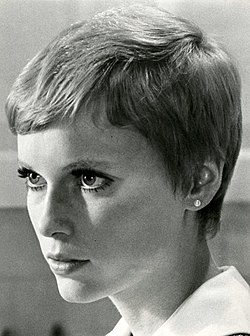Background
Krzysztof Komeda, though still relatively unknown in the United States at the time, was already regarded as one of the most important jazz musicians and film music composers in Europe, scoring films such as Andrzej Wajda's Innocent Sorcerers (1960), Henning Carlsen's Hunger (1966) and most of Polanski's previous works, most notably Knife in the Water (1962) and The Fearless Vampire Killers (1967). Being his regular collaborator, Komeda was once again asked by the director to score his first American-produced film in December 1967. [8]

The composer wrote lullaby for Rosemary's Baby in the early 1968 in Sunset Marquis, a hotel he was staying in. Komeda composed seven themes for possible use in the score before choosing the melody that would be used as the film's main theme. [9] According to Polanski though, he composed only two different melodies, one of which was more commercial, the other less so. Since the director was unable to help him decide which one was better, it is unclear which of them was ultimately used. [8] When the composition was completed, it was shown to the fellow Polish composer living in Los Angeles – Henry Vars, who gave Komeda some unspecified instructions regarding it. [8] Krzysztof Komeda orchestrated his score with Dick Hazard, and with Jack Hayes conducting, it was recorded in April 1968 at Samuel Goldwyn Studios in Los Angeles, California. [9]
Polanski had the idea of asking Mia Farrow to perform the wordless melody over the opening and closing titles:
To my surprise and delight, she proved able to hum quite well, and there's no mistaking the owner of the voice that accompanies the opening credits. Not for the first time, a film of mine had derived an added dimension from Komeda's wonderfully imaginative music.
When Rosemary's Baby became an instant hit, Komeda's score earned its share of the critical praise, with Cue calling it "excellent" and Weekly Variety terming it "appropriately eerie". [9] Komeda received a Golden Globe nomination and followed Rosemary's Baby with another project for producer William Castle, the prison drama Riot (1969), but it proved to be the final film of the composer, who died on April 23, 1969. [5]